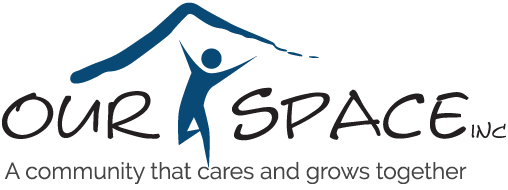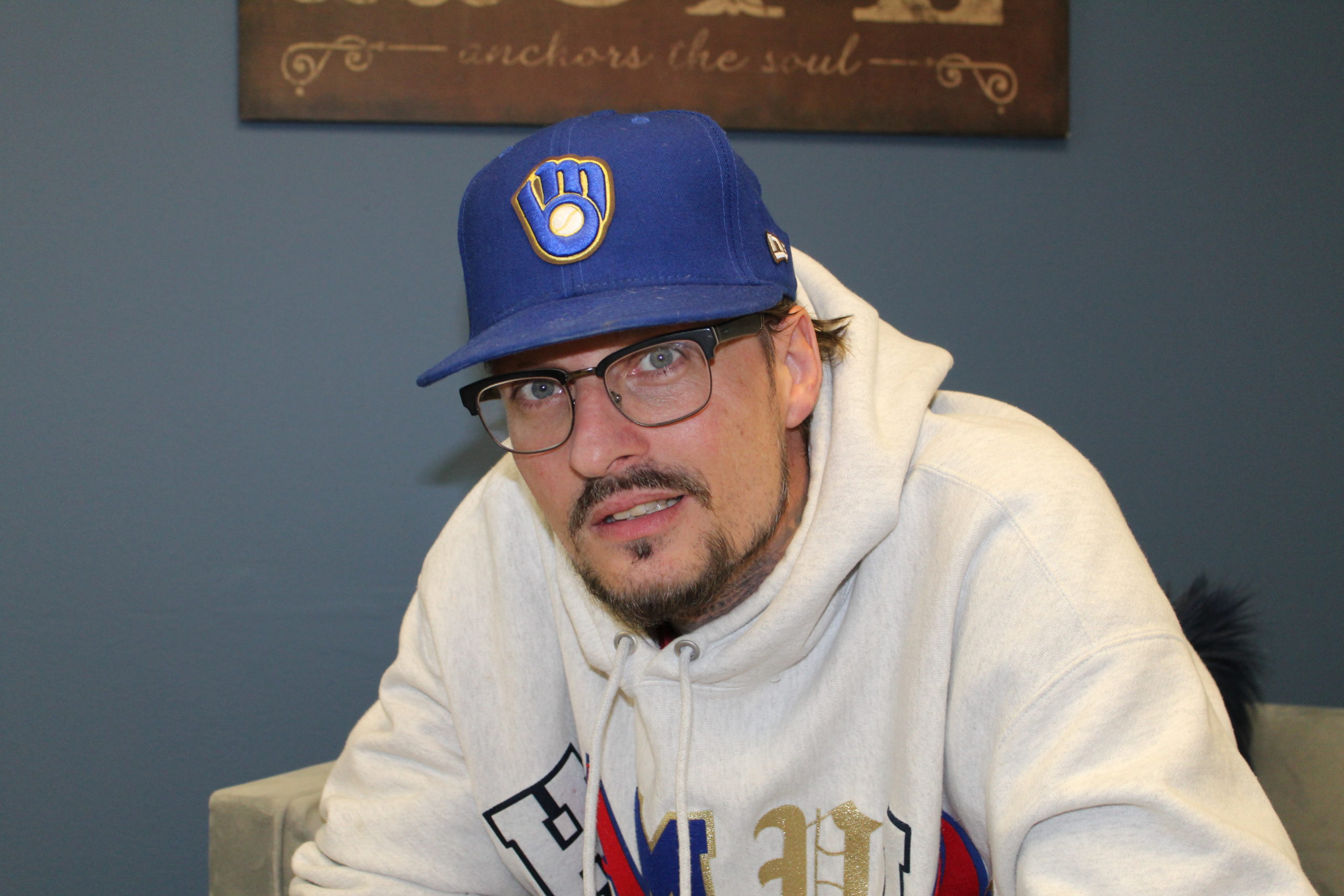
When Robbie thinks back on his childhood, it doesn’t hold the typical memories of a young boy. Growing up without siblings, to a single mom who was regularly in the throes of addiction, put him in the position of man of the house at an early age. “I remember being in the living room with thick clouds of smoke from crack, and my mom’s friends were there. They would come around when mom got paid. When the money and the dope were gone, they were gone too, and I was left to clean up the pieces. My mom was coming off drugs and I had to deal with it,” Robbie recalls.
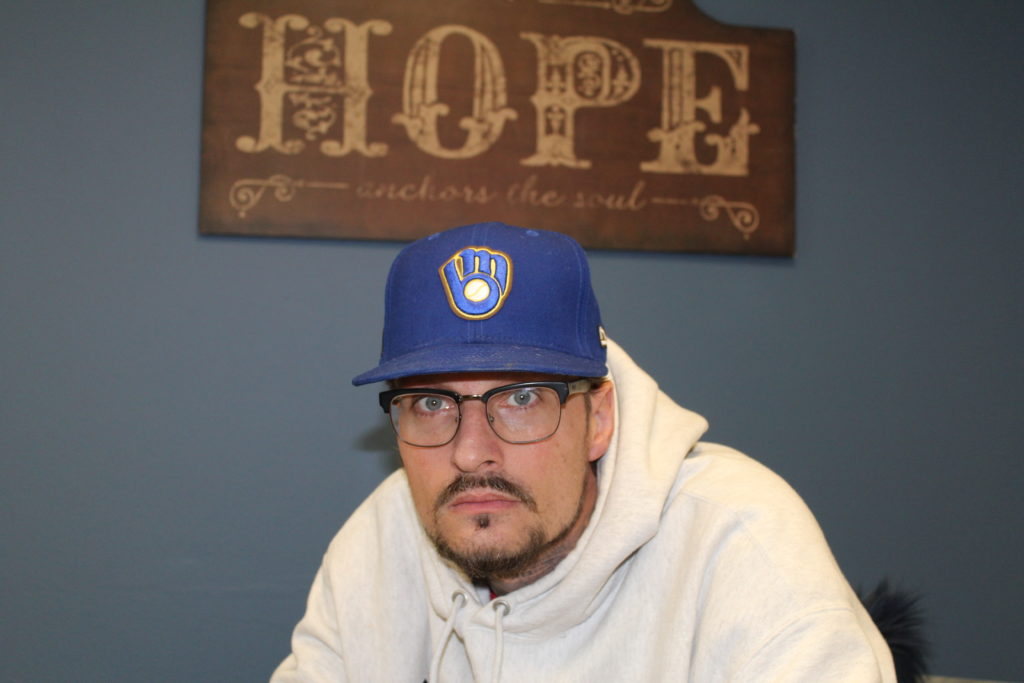
While he was young in age, he was wise beyond his years to a lifestyle not fit for a child. “Our school was the first to do D.A.R.E. [Drug Abuse Resistance Education], in third grade. I knew so much that the cops took me out of the class and ask me how I knew the things I did. But I was always taught to just say ‘I don’t know,’ because I saw so much as a kid,” he notes.
To Robbie, an ordinary childhood was far more unnerving than the life he was living. “Drugs were so normalized to me that I would go to friend’s houses and they would have family dinners and sit down and talk. That was abnormal and uncomfortable. What I lived with was my normal.”
While his mom did not parent in a conventional way, Robbie only has respect for the woman who raised him. “I didn’t have a mom; I had a best friend. She did the best she could. She was quick to think and was resourceful. There were nights when we didn’t have food, so she would go to Walgreens and boost [shoplift] food just so we could eat. In spite of her addiction, she made sure she never lost me, even as bad as things were.”
Because of evictions, Robbie recalls moving frequently. “We were evicted a lot. If we were in a place for too long, it was too much for me because I knew something was wrong. The eviction was coming. We got kicked out of housing so much that the eviction company and Sheriff knew us by name.” but despite the frequent moves, his mom found a way to bring a sense of comfort to their current place of resident. “My mom knew how to turn wherever we lived into a home. From sleeping in cars, to basements, to abandoned rooms, she always turned it into a home,” Robbie recollects.
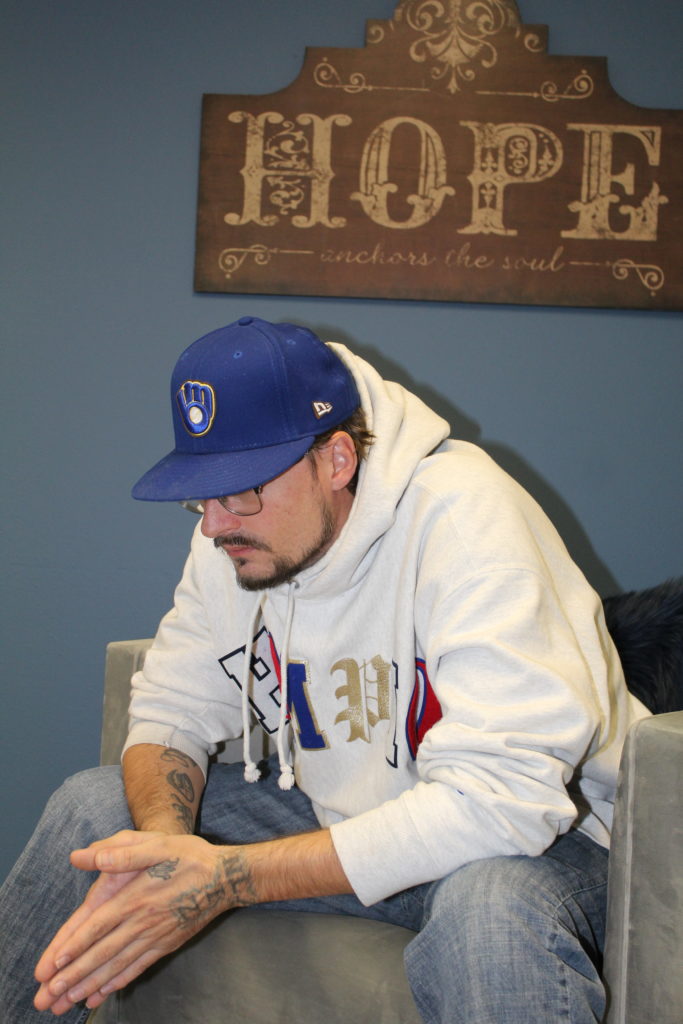
As he grew, Robbie took on the role of protector for his mom. “I watched my mom get beat. I heard her get raped. There were times that she would be up for days getting high and I had to talk her down. I had to tell her that she was okay, and no one was outside or was going to hurt her.”
Much of the stability in Robbie and his mom’s lives came from his grandparents. His grandmother, who he considers his cornerstone was there to bail his mom out if things got too rough, and his grandfather provided him with an example of a father figure. Robbie credits his grandpa with teaching him to have a strong work ethic. “My grandfather always told me ‘you’re not a man unless you can provide’ he meant that nobody owes you anything. I took those words and used them.”
To say that Robbie saw a lifetime in his formative years would be a gross understatement. By age 12, his own struggle with addiction began. “At 12, it was weed and things like that, at 14, I was hitting cocaine and the powder, and by 18, I was hitting the pipe…I always say that drugs have hands. Because when you do it, it grabs you and does not let you go. They say that one hit is too much and a thousand is not enough and it’s so true. I chased that dragon for a very long time,” he notes.
The birth of his daughter, at age 23, was the impetus Robbie needed to work on getting clean. “The moment I held my daughter after she was born, I knew I had to do something different.” For the first two years of her life, he was still using on and off, then he had a nervous breakdown and ended up in Froedtert mental health. “I remember sitting my daughter on my lap crying, and I promised her I would change.” It wasn’t an instant change, but rather it took place over the span of a few years, with Robbie making slow and steady progress. “It was like being on the gas accelerating for so many years. I just slowly started to take my foot off, and the time between relapses became further and further apart,” he reflects.
As he started making strides in his recovery, both Robbie and his mom began creating a better life for themselves. “At age 24 I was living with my grandmother, working hard and was able to save enough money for the first month’s rent and a security deposit. That’s when I got my mom and I a little bungalow to rent. It was baby steps to get there but we did it. She was clean, I was clean, and we were working it out.” He proudly recalls the day they moved on from that little house, with markedly different circumstances surrounding their departure. “As I started growing in who I was, my mom and I made our first move not because of eviction, but because we wanted a bigger place. We were starting to get a taste of a healthy life–food in refrigeration, working a regular job, not getting frustrated.”
The biggest advances for Robbie came when he took a job with Milwaukee Center for Independence (MCFI) as a cook. “I thought it was just a cooking job, but I saw people with special needs in the kitchen and I was able to interact with them. I got really close with them. I would ask how they wanted to be treated. Every one of them told me that they just wanted to be treated like everyone else. It made me realize that everyone is just human. At the end of the day, it kept pointing back to ‘treat me like everyone else.’”
He went from a cook to a driver, delivering meals to various organizations. One of which was Pathways to Permanent Housing, a supportive housing program serving individuals with mental health and addiction issues. “I started to connect with the people who were living there. Just talking with them. They would be waiting for me at the elevator every day when I made my delivery.” Eventually, he was offered a job as a part-time resident manager with the organization. To Robbie, it was the job for which he was created. “I was exceling and thriving there. It didn’t feel like a job…I was just being me, just being there for them. I fed off the feeling I got when I connected with them. And I was good at what I did.”
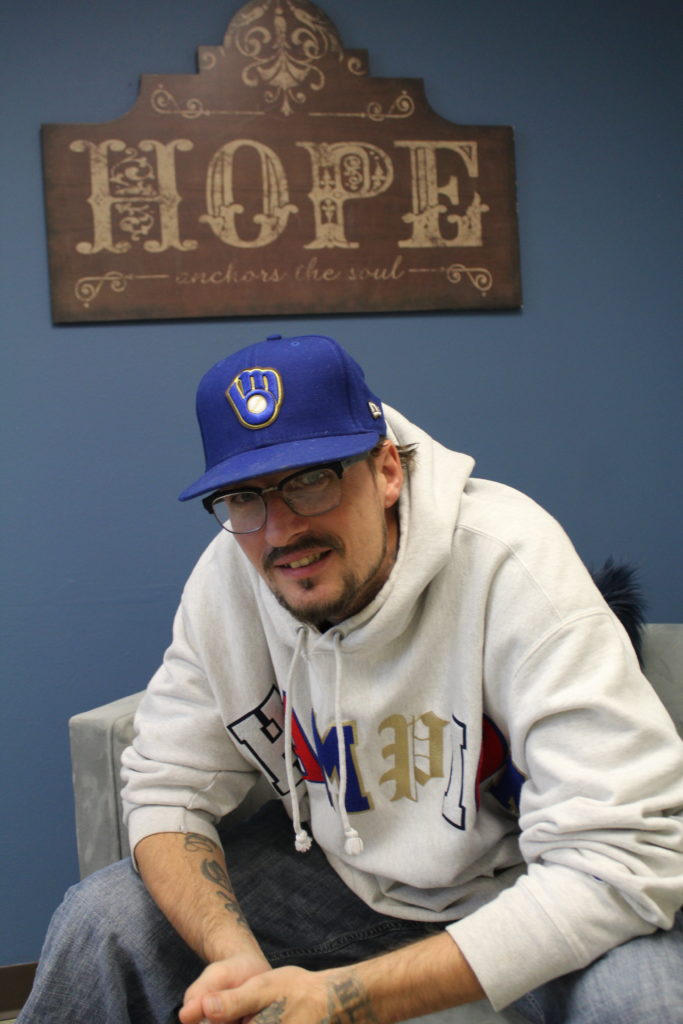
As time went on, his supervisor suggested he apply to become a Peer Support Specialist. The job required him to take a class and pass a State Certification Exam. He ignored the suggestion at first, but he eventually decided that this was to be the next step in his journey–a first step towards a life that didn’t have him living day-to-day.
The road to get his certification included several failed attempts before Robbie finally achieved his goal. “I went through the class and failed the test three times. When I failed the third time, I wanted to give up.” But he had a good friend who keep pushing him forward, so he signed up a fourth time, took the test, and passed with a 95%.
That’s when Our Space came into the picture. “They gave me a shot. They saw something in me. I work hard every day to meet their expectations, to pay it forward.” Robbie notes that his job as a Peer Support Specialist gives him, and others like him, a second chance. “When I speak to people about my job, I tell them it was made for people like me. Before I lived from day-to-day, but to have a career and be good at, it means a lot. I look forward to it. Sometimes it feels like I am doing it wrong, because it feels so natural.”
What keeps Robbie going now–even in difficult times? “When my clients give me a hug and say thank you; or being told that I am the only one that knows something that they shared. My drive is to be the person that I wish I had growing up. My drive is to remold how we view addiction struggles. We need to stop forgetting about them or trying to make everyone fit a certain plan. Everyone is on their own path, but for some reason we lump them all together. Everyone is their own life, and we need to start treating people this way.” His goal is to start a revival throughout Milwaukee. “I was born and raised here, and I love my city. I want to revive my community. We need to start looking out for people with mental health challenges and create a space where they can succeed.”
In the end, living a life worthy of his daughter continues to motivate Robbie’s choices. “I treat every person the way I want my daughter to be treated. I think ‘what if someday she goes through something like this and I am not there?’ But maybe someone else will show up and treat her with the same love and respect I show my clients. I believe what you put out is what you are going to get back.”
